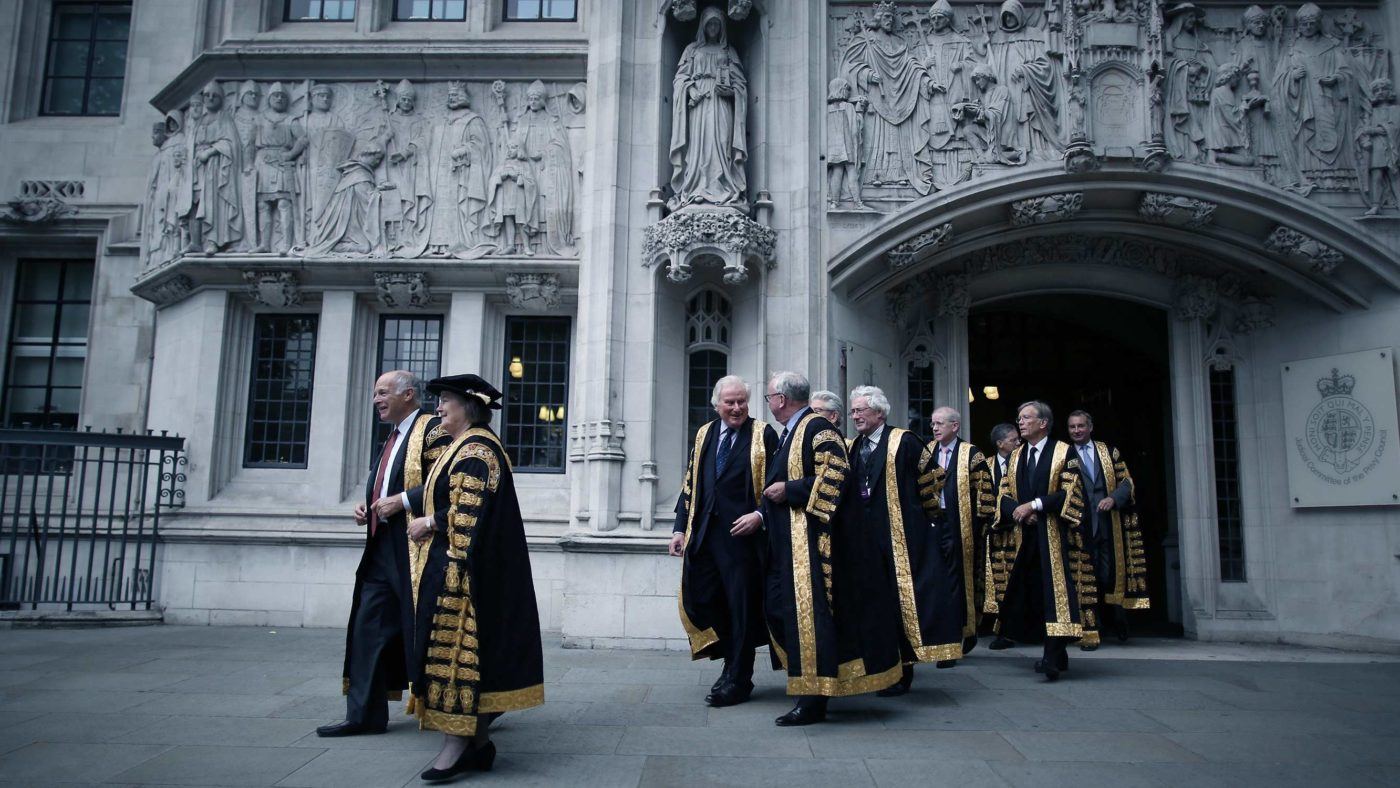The Supreme Court decided yesterday that the legal process of leaving the European Union cannot begin without a decision expressed in an Act of Parliament. The Court was not unanimous; it was split eight to three.
And, in fact, the dissenting judges made the stronger legal case. Lord Reed, for example, persuasively argued that Parliament had never changed the orthodox constitutional framework in which the executive is legally able to withdraw from treaties without prior authorisation from Parliament. However, before I consider what the Court got wrong, I want to stress what it got right.
All the Supreme Court judges agreed that supremacy of Parliament is the core of the British constitution and that the UK’s membership of the EU did not change that. All the judges agreed that Acts of Parliament trump all other kinds of law and that prerogative cannot be used to do anything an Act of Parliament requires not to be done.
Agreement on those fundamental principles is important, because it cannot be taken for granted. Some judges and lawyers have speculated that, since the UK’s entry into the EU, Parliamentary sovereignty, in its traditional sense, is no more and that EU law is supreme law in the UK (because it trumps statutes). The Miller judgment leaves no doubt that this view is to be rejected.
Also, a Court deciding for the Government might have done so in a way that expanded the scope of executive power relative to that of Parliament. The argument presented by Lord Reed, who concluded that the Government should have won, was free from that error, but the risk was not trivial. It is proper that Parliament retains its central role as the lawmaker for the United Kingdom.
Nevertheless, the majority of the Supreme Court got the result wrong. They did so by misinterpreting the legislative choice that Parliament made in enacting the European Communities Act 1972 (ECA), the statute that established the basis for what is now EU law to operate in the UK.
Lord Reed in his dissent took the right approach. He noted that the crucial “constitutional change” of giving effect in UK law to what then was Community law did not happen the moment Parliament enacted the ECA 1972, but only when the Treaty of Accession came into force in public international law, due to a prerogative act.
If the “constitutional change” of bringing Community law was conditional on a prerogative act, then why can the “constitutional change” of removing EU law not likewise be conditional? The majority responded that Parliament “endorsed and gave effect to the UK’s future membership of the European Union” ([82]). But what if the government had chosen not to ratify the Treaty? Or had withdrawn from it before it came into force? These are just some of the questions that Lord Reed posed and the majority failed to answer persuasively.
The majority’s approach boils down to a desire to be “realistic” and to an insistence that it would be bad if ministers effected constitutional change alone. Although the Court’s “realism” is mostly misplaced, the second intuition is a sound one.
The problem with its application in this case is that ministers did not purport here to act “alone” in a relevant sense. They purported to act within the four corners of the scheme of the ECA 1972, as understood in accordance with the entirely orthodox model of the role of the executive in the conduct of international affairs.
Perhaps the majority of the Court does not like the scheme actually enacted in the ECA 1972. Perhaps they think that it would be bad if ministers were allowed to trigger the procedure of leaving the EU and that leads them to conclude that Parliament should not be taken to have intended to allow this course of action. However, as Lord Reed’s dissent makes clear, no court should accept this chain of reasoning.


